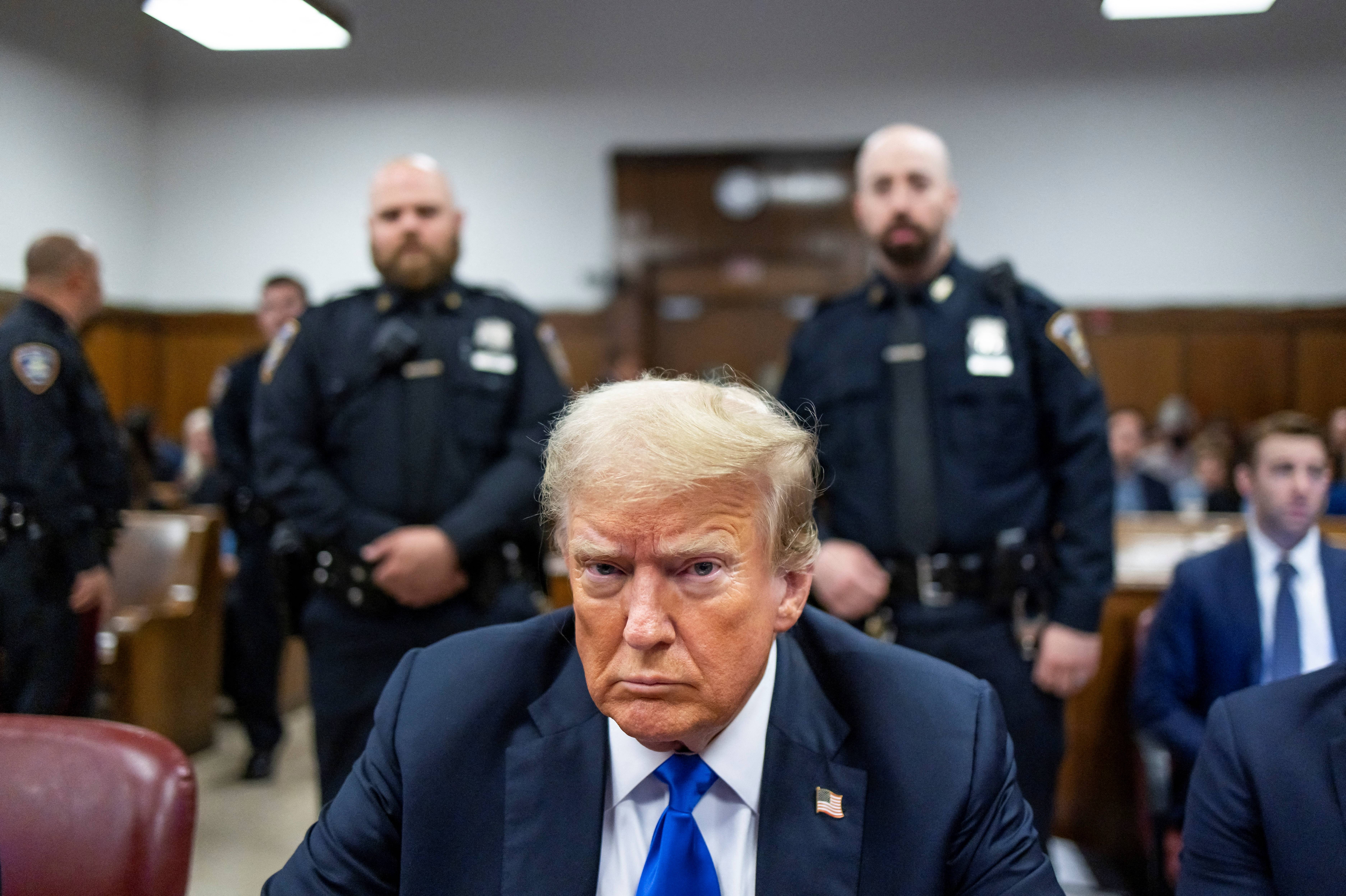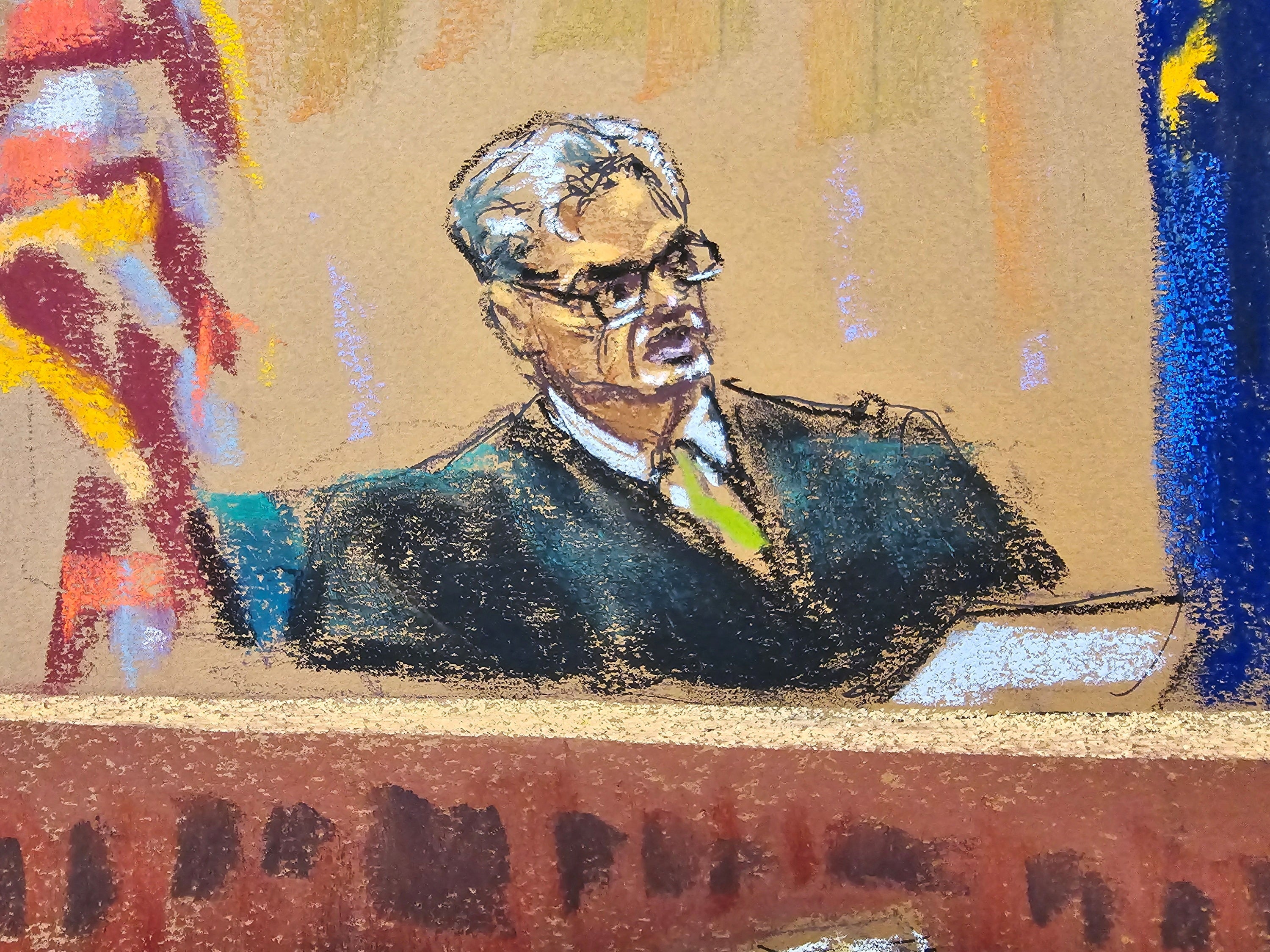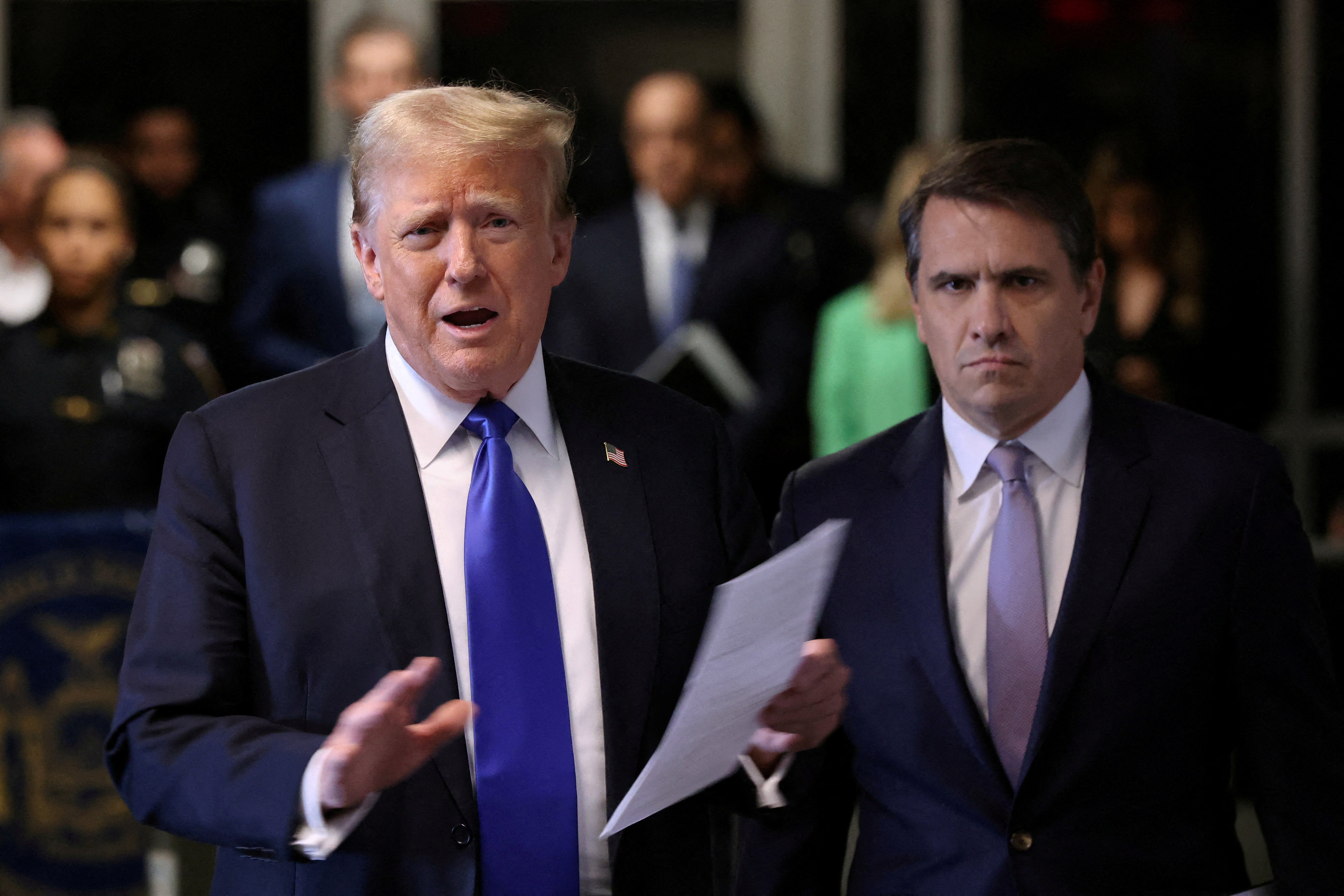Will Donald Trump be jailed for hush money conviction?
Trump, who was found guilty of committing 34 felonies, is first ever US president to face a criminal trial and sentencing

Your support helps us to tell the story
From reproductive rights to climate change to Big Tech, The Independent is on the ground when the story is developing. Whether it's investigating the financials of Elon Musk's pro-Trump PAC or producing our latest documentary, 'The A Word', which shines a light on the American women fighting for reproductive rights, we know how important it is to parse out the facts from the messaging.
At such a critical moment in US history, we need reporters on the ground. Your donation allows us to keep sending journalists to speak to both sides of the story.
The Independent is trusted by Americans across the entire political spectrum. And unlike many other quality news outlets, we choose not to lock Americans out of our reporting and analysis with paywalls. We believe quality journalism should be available to everyone, paid for by those who can afford it.
Your support makes all the difference.Donald Trump will be sentenced in his historic New York hush money case today, becoming the first US president – former or sitting – to face a criminal trial, let alone a guilty verdict and subsequent sentencing.
Mr Trump is set to be sentenced at 9:30am local time (2.30pm GMT) after Manhattan-based Judge Juan Merchan denied his attempt to throw out the guilty verdict and the Supreme Court voted 5-4 against pausing the sentencing.
The court ruled the hearing will not be delayed because Mr Trump’s argument for throwing out the verdict can be addressed in the standard appeals process, and the sentencing will place an “insubstantial” burden on Mr Trump as no penalties will be imposed.
What is Trump being sentenced for?
Mr Trump was found guilty on 34 felony counts of falsifying business records, with prosecutors arguing Mr Trump falsely recorded reimbursements he made to his former lawyer Michael Cohen for paying $130,000 to adult film star Stormy Daniels, so she would keep quiet about an alleged affair with the then-candidate.
The trial played out with the extraordinary backdrop of Mr Trump’s hugely successful campaign to retake the White House four years after he was kicked out of office.

Ms Daniels was claiming she had had a sexual encounter with Mr Trump. Mr Trump denies this and denies allegations of an affair.
State prosecutors contended at trial that Mr Trump marked these repayments to Cohen as “legal expenses” on financial documents, intendeding to hide Trump’s violation of New York election law, which forbids promoting any person to office through unlawful means. They said that the unlawful means were the payoff to Daniels, as they cast it as an illegal campaign contribution.
Trump denies the charges.
What is Trump’s sentence likely to be?
Judge Merchan has said there is “no legal impediment” to sentencing.
“It is this Court’s firm belief that only by bringing finality to this matter will all three interests be served,” the judge wrote in a ruling in early January, which the Supreme Court later refused to overrule.
“A jury heard evidence for nearly seven weeks and pronounced its verdict; Defendant and the People were given every opportunity to address intervening decisions, to exhaust every possible motion in support of and in opposition to, their respective positions in what is an unprecedented, and likely never to be repeated legal scenario,” the judge said.
“This Court must sentence Defendant within a reasonable time following verdict; and Defendant must be permitted to avail himself of every available appeal, a path he has made clear he intends to pursue but which only becomes fully available upon sentencing,” Judge Merchan added.

Each count is punishable by up to four years in prison and/or a fine of up to $5,000. A prison sentence was effectively ruled out by Judge Merchan in his early-January ruling, who noted that prosecutors had acknowledged incarceration would not be “practicable”.
Granting “unconditional discharge” is the most “viable solution”, the judge said. This means Mr Trump will remain convicted but will not have any penalties imposed on him.
According to New York law, the court would have to explain its reason for giving unconditional discharge to the defendant, who is released “without imprisonment, fine or probation supervision”.
In theory, Mr Trump could be fined up to $170,000 even if he is not given prison time, and could be issued penalties such as probation.
Will Trump be able to pardon himself?
A sentencing means Mr Trump will be formally convicted of the crimes, even when given unconditional discharge. The sentencing means Mr Trump will be allowed to formally appeal the jury’s verdict against him, which he couldn’t do previously.
Mr Trump will not be allowed to pardon himself. As the criminal case was brought in a state court there is no mechanism by which Mr Trump can pardon himself.
There is legal debate around whether Mr Trump would be allowed to pardon himself in a federal case, rather than a state case - but this does not apply to the hush money case. The two federal criminal cases against Mr Trump have both previously dropped.

What will Trump’s conviction really mean?
As a convicted felon, Mr Trump will face a number of restrictions - but as incoming president many will likely not apply to him.
The conviction did not affect his election as president. The US Constitution states only that the president must be at least 35 years old, a natural-born citizen of the US and have been a resident of the US for 14 years.
Legally, Mr Trump won’t be able to serve on a jury, own a firearm, or travel to a number of countries which bar convicted felons, such as Canada. Precedent was set for this by president George W. Bush, who required a waiver to enter Canada after previously pleading guilty to drunk driving.
Australia, Canada, China, Japan and the United Kingdom also have these restrictions in place, according to Forbes.
The restrictions vary state-by-state, but according to The Law Dictionary can also include voting, employment in certain fields, and parental benefits - none of which are likely to have much impact on Mr Trump.
Join our commenting forum
Join thought-provoking conversations, follow other Independent readers and see their replies
Comments